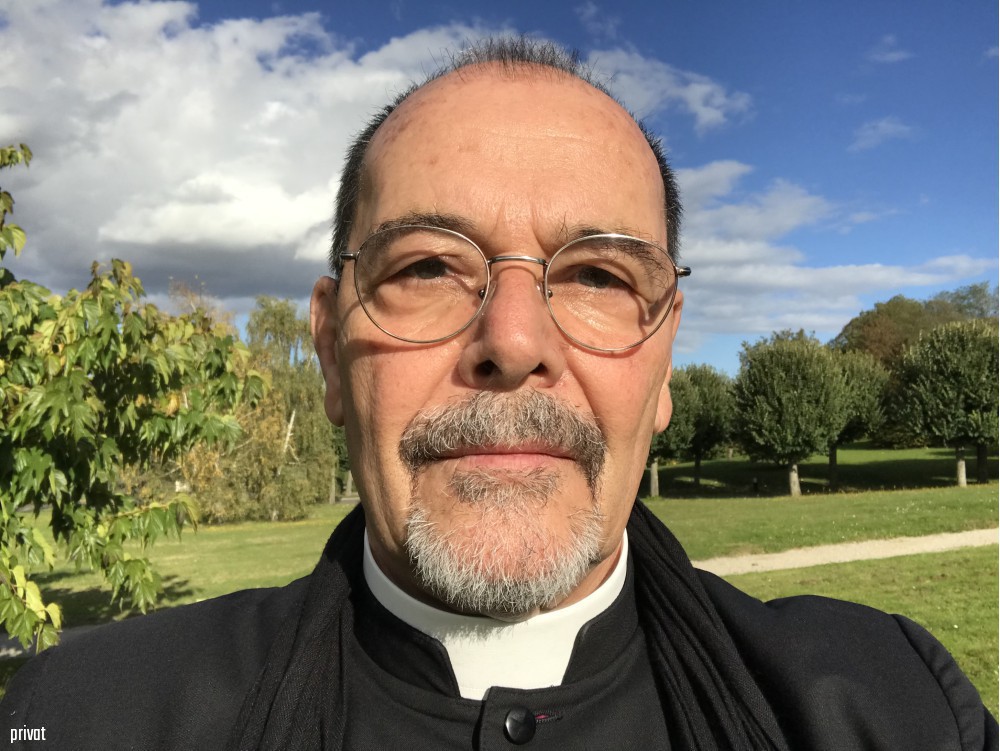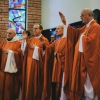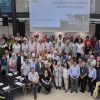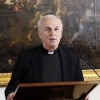Artikel

Second Interview with a signer of the Reform Manifesto
Maria 1.0: Dear Monsignor Joachim Schroedel, thank you very much for taking the time for this interview. You recently signed the Reform Manifesto (see below for explanation). Could you perhaps first explain to our readers who you are and what you do?
Monsignor Joachim Schroedel:I am first a very simple priest who has been proclaiming the truth as taught by the Church for 38 years. I have been doing this for 26 years in an environment of almost 90% Muslims. Until 7 years ago I did my priestly service for the German speaking community in Egypt, Syria, Jordan, Lebanon and Sudan as well as in Ethiopia. Then my ministry was no longer considered necessary. My bishop at the time, Karl Cardinal Lehmann, suggested (in 2015) that I could continue working as a retiree - at least in Egypt. I gratefully accepted for the parish.
Maria 1.0: What motivated you to sign the Reform Manifest?
Monsignor Joachim Schroedel:What are the reasons for not doing so? Almost daily I receive inquiries from Oriental Christians and Muslims who simply do not understand why the Catholic Church in Germany is giving up on itself. In dogmatics and moral theology, the Catholic Church of Germany has been in decline for years. Orientals hope for clear Catholic positions - but they only hear statements - from laymen and even bishops - that deeply unsettle them. Renewed restructuring and Protestantization of the liturgy, relativization of the sacrament of marriage, dissolution of the Holy Eucharist as a “communal meal” from which no one ought to be excluded... this and much more is hardly understood by the people with whom I am dealing.
Maria 1.0: The nine theses of the Reform Manifesto stand in contrast to what is currently being talked about on the so-called “Synodal Way”. What is your assessment of the latest developments at the Synodal Assembly?
Monsignor Joachim Schroedel:The Holy Father wants a new evangelization. The popes before him had also repeatedly called for this. Today, however, there is talk about structures, distribution of power, justice in offices and much more. These are not spiritual issues, but structural ones. The Synodal Way, as it has been described, has not least been defined as insufficient by the new beginning of the Holy Father. He himself (the Holy Father) admonished the Church in Germany several times, explaining what “renewal” meant in his opinion. Even the bishops closed their ears and their hearts to this. “Neo-ultramontanism,” is how I would define it theologically. “What does the Pope want; we are financing him!” That was the question in about the 1960-/1970s. Today, the dignitaries worry about financing their German Catholic Church. This, for God's sake, must not be! I have been living on the front lines for 26 years. Egypt's Christians are faithful, and sometimes martyr-like, when it comes to faith and truth. Meanwhile, many Christians of Egypt have only contempt for the so-called Catholic Church in Germany.
Maria 1.0: What can other Catholics do, especially lay people, who cannot identify with the “reform concerns” of the Synodal Way?
Monsignor Joachim Schroedel:The frontal attack of this enterprise, which calls itself “Synodal Way” (by the way, this expression is comparable to “white snow,” [tautology = pleonasm = double mention of a fact] becausesynodos already means “common way”!), intervenes deeply in the faith of the Church. The sacraments of the Ordo (consecration), of the Most Holy Eucharist (communion), and of Holy Matrimony are denied or subjected to a fundamental reorganization. Three of the seven sacraments are simply being disposed of. In addition, Holy Confession has been virtually abolished by disuse. What remains? A Protestantized form of “Jesus fellowship” that somehow wants to make everyone a little happy. By turning to new topics (environmental protection, CO2 reduction, etc.), some circles are entering into a pact with political parties. Well, let them do it. The proclamation of Christianity is something else: This world is TRANSCIENT. It is not PARADISE, but the “vale of tears” of probation. This is exactly what everyday believers should address today.
Maria 1.0: It can be observed that many people feel connected to the concerns of the reform manifesto, but shy away from signing it in order to avoid possible negative consequences by their own bishop or a bad atmosphere within their parish or at their workplace. How do you perceive this, and what would you like to see happen to improve the culture of discussion?
Monsignor Joachim Schroedel:The attitude today is: we want democratization, we want all people to express themselves and say how they imagine the future of the world and the church to be. I myself had the opportunity to experience something very paradoxical. I was reprimanded by a high authority because of a harmless Facebook entry, which did not even show a word but a symbolic notation (thumbs up to a criticism of my Ordinary), but I also received desperate already mail from these same people who were simply afraid of criticism... I hope that precisely here Catholics will stand up to participate. It cannot be that those who have no voice (who are so “mercilessly conservative”...) are subjugated. It seems to me that the 1989 saying “WE ARE THE PEOPLE” has taken on a new meaning for us Catholics. The whole synodal-catastrophic-self-destructive process would haveone chance, namely if the SYNODAL WAY would solemnly confess: “We are ending our discussion because the Holy Father has made NEW EVANGELIZATION the starting point of his renewal agenda. Let's go for it!”
The Reform Manifesto was published on September 29, 2021, on www.neueranfang.online/manifest. It was written by the “Arbeitskreis Christliche Anthropologie” - a Christian interest group that is engaged in anthropology, ethics, philosophy, theology, and journalism. The Reform Manifesto consists of 9 theses: 1. legitimacy, 2. reform concept,3. unity with the whole universal church, 4. power, 5. women, 6. marriage, 7. blessing of same-sex unions, 8. laity and priests, 9. abuse.
In it, the authors of the manifesto deliver a damning indictment of the German Synodal Way: It “misses the beginnings of true reform dramatically.” [The manifesto states that] in its fixation on external structure, it “passes by the heart of the crisis.” [The manifesto furthermore states that] it violates peace in the congregations, abandons the path of unity with the universal Church, damages the Church in the substance of its faith, and amounts to a schism (= the founding of a separate Church detached from Rome).
The reform manifesto can be signed here: https://neueranfang.online/manifest/#unterzeichnen
The head of Maria 1.0, Clara Steinbrecher, as well as many supporters have already signed the Reform Manifesto.


